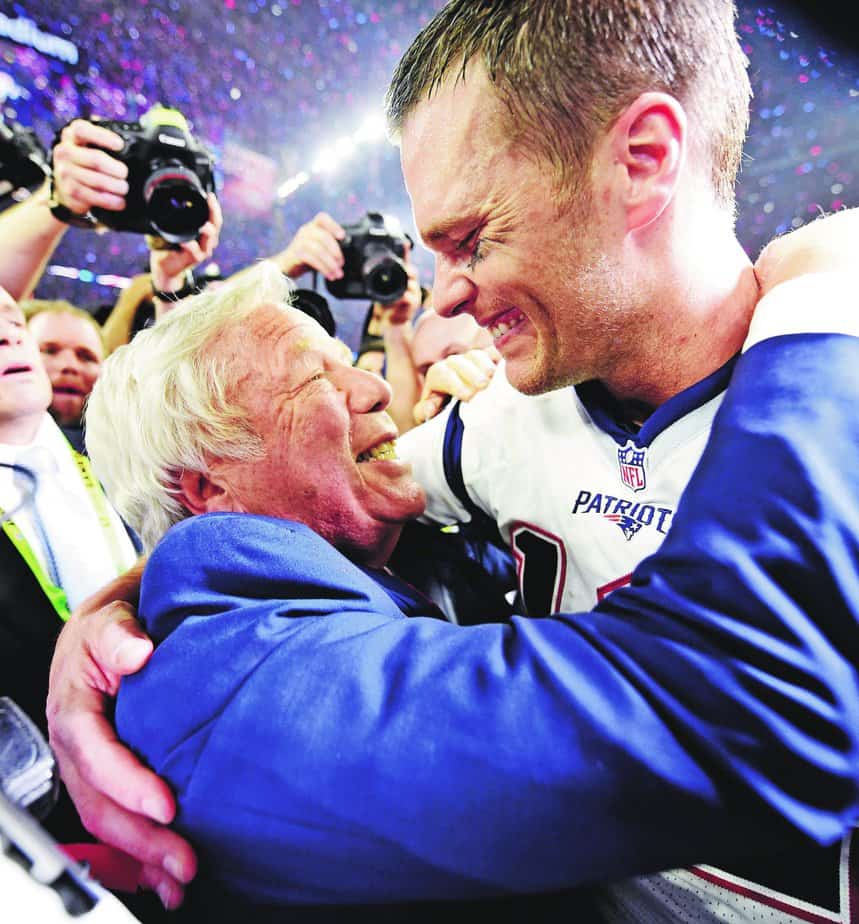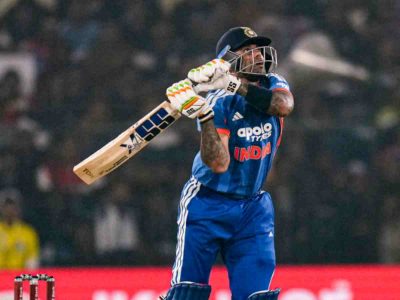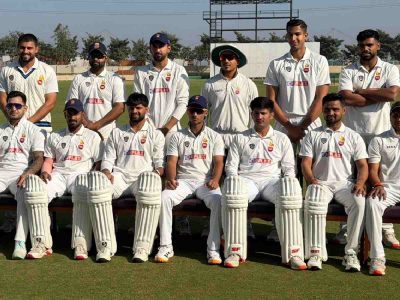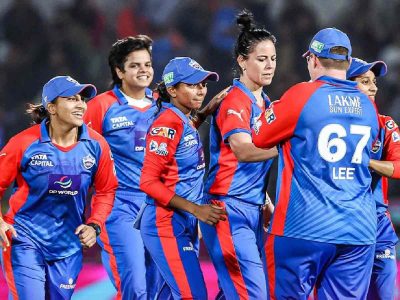TRUMP’S BERATEMENT OF AMERICAN FOOTBALL PLAYERS USING GAMES TO PROTEST AGAINST POLICE KILLINGS OF BLACK PERSONS, HAS MADE THEM MORE INFLUENTIAL. AND THE MOST VOCAL TEAM, EAGLES, BEAT THE PRESIDENT’S FAVOURITE, PATRIOTS
Super Bowl, the culmination of America’s National Football League, is possibly the most-watched single-sport event in the world. The organisers of the Olympics, Formula One and football World Cup are likely to contest the claim. Super Bowl, according to the NFL, positively contributes $300-400 million to the host’s annual economy. This too was contested by several critical studies. But there is no denying that the Super Bowl has become the hub of America’s cultural, and now political, structures.
There are several plot-points from Super Bowl LII that assumed the centre stage in the recently-concluded NFL season. The most important story, surprisingly, or may be not surprisingly, was the one that occurred outside the field of play, inside an arena in Alabama last year. Addressing a rally for a Republican senator, President Donald Trump berated American football players for engaging in silent acts of civil disobedience, and almost derailing the season.
He said that the players were “sons of bitches” for participating in a protest started by quarterback Colin Kaepernick (at the time Kaepernick played for the San Francisco 49ers) against police killings of black people. He then went on to take the credit for a fall in the league’s TV viewership ratings, and thumbed his nose at the hard-won strides towards players’ safety. He claimed that the referees were doing too much to protect the players over the controversial long-term effects of concussions.
By training his rhetorical bullets on the cross hairs of America’s national pastime, Trump shrewdly co-opted the NFL as not merely a proxy battle of the US culture wars, but its primary theatre. As he took centre stage, he trained his verbal gun at two football teams with vastly different ideologies towards the sport and life.
At that time, the New England Patriots were the defending champions, and a franchise that transformed itself within a generation. From a moribund also-ran, the franchise became the most reliable winning-machine in American sport. It won five Super Bowl titles in 16 years, which were underwritten by a trinity of constants: quarterback, Tom Brady, head coach, Bill Belichick, and owner, Robert Kraft. It was the team of teams, and nothing speaks like success.
By contrast, the Philadelphia Eagles had won three titles in its 85-year-old history. And the last time it did so was way back in 1960, i.e. six seasons before the NFL’s championship game became known as the Super Bowl. This year, the team started with the league’s best record, before it lost its quarterback, Carson Wentz, to a season-ending knee injury in December 2017. It was an important underdog plot twist. But it embraced its role under the backup, Nick Foles, whose stupendous form took it to the title.
If the on-field narrative of the Super Bowl was juicy, the off-field and wider political drama was juicier. The Patriots were cast, fairly or otherwise, as the team backed by Trump. Head coach Belichick wrote a letter to the president after his election victory, and owner Kraft held regular private meetings with the latter. Brady, of course, was the most vocal of the trio. During the Republican primaries, even before the face-off between Trump and Hillary Clinton, he said that “it would be great” if his friend and golfing buddy won the White House.
The Eagles has a reputation for being the league’s most socially-conscious team, and makes it a point to embrace, rather than avoid, controversial causes. Several players worked with the local police and discussed prison reforms with politicians. Chris Long, another defensive player, donated his season’s wages – the proceeds from his first six games went to his hometown (Charlottesville) after violent protests a few months ago, and the rest to education initiatives.
The club’s reputation for being “woke”—a term first used in the African American community to describe newfound social conscience—reflects the developments in its city. The mayor of Philadelphia, James Kenney, is a progressive, who pushed for policing reforms. The district attorney was elected despite having sued the police 75 times. Also, the city is a sanctuary where people are not asked about their immigration status.
And so, against this backdrop, the Eagles ended their 57-year drought in the most thrilling way. It was an absurdly high-action game that saw 74 points, and an eye-popping 1,151 yards of combined offense, which broke the previous Super Bowl record even before the fourth quarter started. The figure was higher than any game, regular season or playoffs, in NFL history. It was one of the greatest Super Bowls played. And it was won by a team that hadn’t done so since Dwight D Eisenhower was the president of the USA.
But how do you beat the Patriots? You get to the quarterback, Brady. It was the conventional wisdom for the better part of this NFL generation, and nothing changed as the mantra was repeated ad nauseam during the fortnight run-up to the game. It took 58 minutes for the Eagles to accomplish the task, and the reward will resound down the generations in this proud, provincial town, where sport means a little too much for its residents.
With the Eagles nursing a 38-33 lead, and just over two minutes left, Philadelphia’s veteran defensive end, Brandon Graham, finally recorded the first sack of the game for either side. Brady, the three-time league’s most valuable player and five-time Super Bowl champion, lost control of the ball and it bounced into the hands of an Eagles’ player. Moments later, the team scored to extend its lead to eight points and, with it, the title.
In most sports, the locker rooms are transient places. Players shift dramatically each year. There are no guarantees that next year, the Eagles will be as ‘woke’. What Philadelphia has in its team may be gone by next summer. But until then, fans will remember that the Patriots were beaten by common sense.





